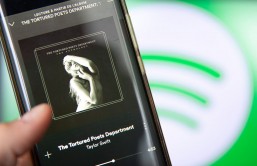Think diet sodas can help you lose weight? Think again. A new study found that this beverage makes you consume more calories than a regular soda.
Diets and weight loss programs have become increasingly popular, thanks to more Americans becoming health and fitness conscious. Whether this is a good thing or not is still a debatable topic. Though one thing is for sure - weight loss programs have given rise to many myths. One such myth is replacing regular drinks with diet beverages. While experts continue to debate about this being a marketing strategy or a useful alternative, a new study found that diet soda does nothing to help you lose weight.
In fact, obese and overweight people who drink diet soda are more likely to consume more calories than obese and overweight people who drink regular soda, according to a press release.
"Although overweight and obese adults who drink diet soda eat a comparable amount of total calories as heavier adults who drink sugary beverages, they consume significantly more calories from solid food at both meals and snacks," said Sara Bleich, PhD, associate professor with the Bloomberg School's Department of Health in a statement.
An analyses of data from the 1999-2010 National Health and Nutrition Examination Survey led researchers to discover that the consumption of diet soda increased from 3 percent in 1956 to more than 20 percent in current times. People who drink this beverage have a higher BMI. Researchers also found that such people consume more snacks and junk food than people who drink aerated or sugary drinks. They were found to consume 1,965 in food calories a day compared to 1,874 calories in people who drank regular sugar-sweetened beverages.
So why does this happen? Researchers found that diet sodas have a higher dose of artificial sweeteners in them which activate the brain's reward system at a greater level. This means the brain's sweet sensors no longer provide a reliable estimate of energy consumption because the artificial sweetener disrupts appetite control, which makes people eat more.
"The results of our study suggest that overweight and obese adults looking to lose or maintain their weight--who have already made the switch from sugary to diet beverages--may need to look carefully at other components of their solid-food diet, particularly sweet snacks, to potentially identify areas for modification," said Bleich.
The study has already met with quite a lot of criticism. According to a few critics, the study is flawed because judging by the data it analyzed, it's too early to tell the effects of this diet drink on weight loss.
Some even revealed that researchers of the study only looked at a 24-hour snapshot of what any individual consumed rather than track their eating habit over an extended period of time, reports Reuters.
Diet soda is said to be healthy because it contains no calories and artificial sweeteners. Purdue University researchers conducted a study in the past that looked into what the definition of "healthy" should be and it found that any healthy beverage should limit the intake of both real and artificial sweeteners, which diet sodas don't. So the question here to ask is how come diet sodas are healthy then?
However, The American Beverage Association termed the report as "an opinion piece, not a scientific study."
"Low-calorie sweeteners are some of the most studied and reviewed ingredients in the food supply today," CNN quoted the association as saying. "They are safe and an effective tool in weight loss and weight management, according to decades of scientific research and regulatory agencies around the globe."
Weight loss is not the only aspect of health that is affected by diet soda consumption. A previous study also found that people who consume diet sodas are at a higher risk of three of the biggest killers in the United States - diabetes, heart disease and stroke.








